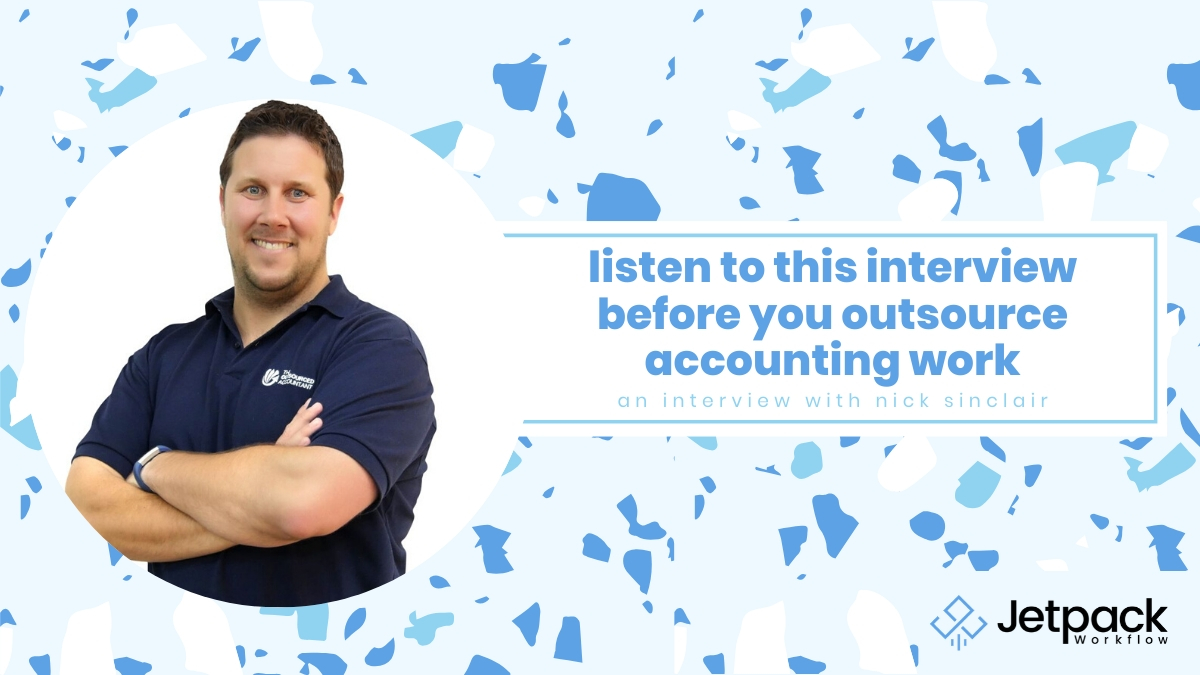Listen to this Interview Before You Outsource Accounting Work

One of the challenges firms face when they grow is acquiring new staff to help out. But finding local staff can be a much bigger challenge than you think, which can make the idea of outsourcing accounting work to another country attractive.
While it can be much cheaper to outsource the accounting work to another country, you can get poor-quality work back unless you take some important steps. Our guest on this week’s episode of the Grow Your Firm podcast, Nick Sinclair, is the founder of TOA Global, an offshore provider of many professional services. Many of the firms we’ve talked to have mentioned his company and they’ve been on our radar for some time. We’ll be talking about the most effective way to outsource some of your accounting firm’s work to another country and how you can get the most out of your offshore hires.
Summary
- TOA’s business model
- The two models of outsourcing
- Why quality problems may be your fault
- Hiring by task, not by role is the smart way to outsource
- Why money is NOT the big reason accounting firms outsource
- Why you should onboard a remote worker slowly
- And more!
Resources:
- TOA Global’s website: https://www.toaglobal.com
- Nick’s email: nick@toaglobal.com
- Nick’s LinkedIn: https://au.linkedin.com/in/nicksinclair
Create a Strong Workflow System Before Outsourcing Accounting Work
So, what does an offshore provider give firms? TOA is, in essence, a labor hire company and facility manager. They provide dedicated full-time workers in the Philippines to accounting and financial service firms in other countries. TOA manages all the employment side of things so you and the workers can focus on productive work. Currently, they have 1,450 people on staff and they’re doubling in size every year.
One of the first things Nick talks about is that there are two models of outsourcing accounting work. The traditional one is where you send work to an outsourcing company in another country. That company does the job and sends back the work, then you review it for errors and send it back if necessary. This back-and-forth is inefficient and takes a lot of control away from the firm.
The other model is more like remote work. Instead of sending work over there and having the outsourcing company decide how to handle it, the company gives you a dedicated resource that works for you. The outsourcing company is the legal employer and handles that side of things, but you can train the worker how you like. This model has been around for some time, but it’s pretty new in the accounting industry.
One of the advantages of outsourcing is that it allows your more senior staff to focus on higher-value work. Nick says that one of his company’s fastest-growing segments is AIS because partners are spending so much time doing administrative work that doesn’t bring in money. The average accountant is spending 40 hours a month doing this kind of work when it could easily be outsourced.
Quality Issues Are Often a Symptom of Poor Workflow
Here at Jetpack Workflow, you know we’re really keen on creating strong workflows for your company to increase efficiency and allow you to scale. Nick says that strong processes are also needed when you outsource tasks to a remote worker. In his experience, the problem is not that the remote worker cannot operate to the level of your standards, but that the standards aren’t clearly defined for the remote worker.
A firm may come to TOA and have poor processes or no processes and expect the company to just know what they want. Or they have a process but it’s all in someone’s head and the outsourcing firm has to tease it out.
If you have strong workflows with checks and measures, the quality of work that you get back from an outsourced worker will be no different than your local team. If you’ve tried outsourcing in the past and didn’t get a good result, you may want to examine and document your processes before trying again.
Hiring By Task, Not By Role
Documenting your workflows allows you to hire people for tasks instead of roles. Many firms would prefer that a new hire be able to take on a large task, like preparing a business tax return, straight away. They have to work really hard to get the new hire up to speed, and in an outsourcing situation, this is even more difficult.
However, more innovative firms are breaking up these larger tasks into smaller chunks and assigning the parts to different people. This lets more junior people gain experience doing something easy, say reconciliations, while the more experienced people can focus on the harder portions of the project. Another good task for a remote worker is all the grunt work needed to onboard a new client, like getting passwords and setting up bank feeds and all the other cleanup work needed to get someone new into your system.
If you want to get the best out of an outsourced worker, hiring them for tasks rather than a role is a fantastic way to help them understand your way of doing business while still freeing up time for your local, more specialized team. As your remote worker gets more skill in your methods, you can move them up to more challenging tasks. Plus, by having all these steps all documented in a workflow, it lets anyone else take over that task as necessary.
Is It All About Saving Money?
Nick says that an accounting firm in the U.S. can hire three to four staff through his company for the same cost of hiring one accountant. They may not have U.S. accounting experience, but they will have a similar level of general accounting experience. However, and this may surprise you, most of TOA Global’s clients are not outsourcing to save money. They are doing it to build capacity or because they cannot find local staff. Plus, they may not have the time to train someone one-on-one locally because they’re buried in work.
Nick has a lot of other ideas on outsourcing in the full podcast, including the full range of services that TOA provides and how he onboarded so many workers (100 a month!) in such a short span of time. He also shares how he was able to get out of managing the day-to-day aspects of his outsourcing firm. Take a listen to the podcast for all the details!





